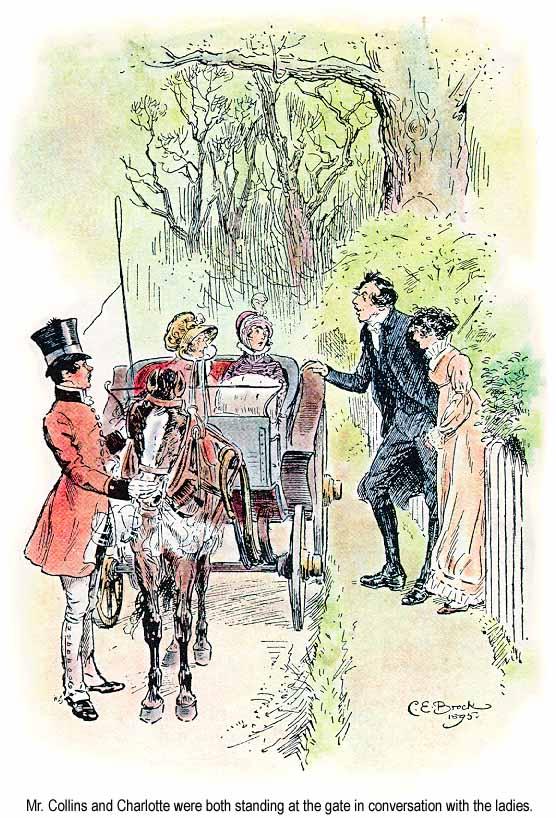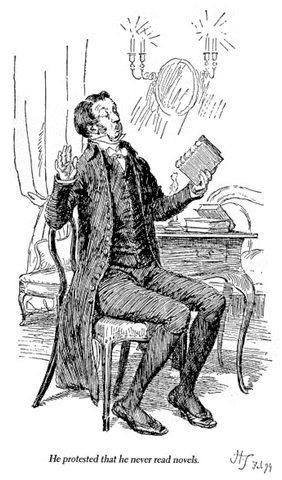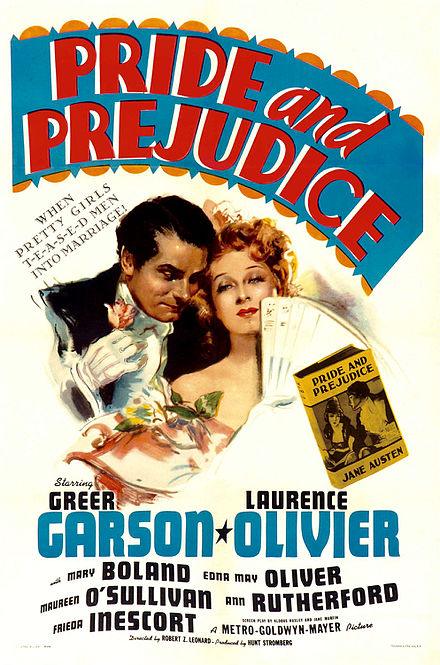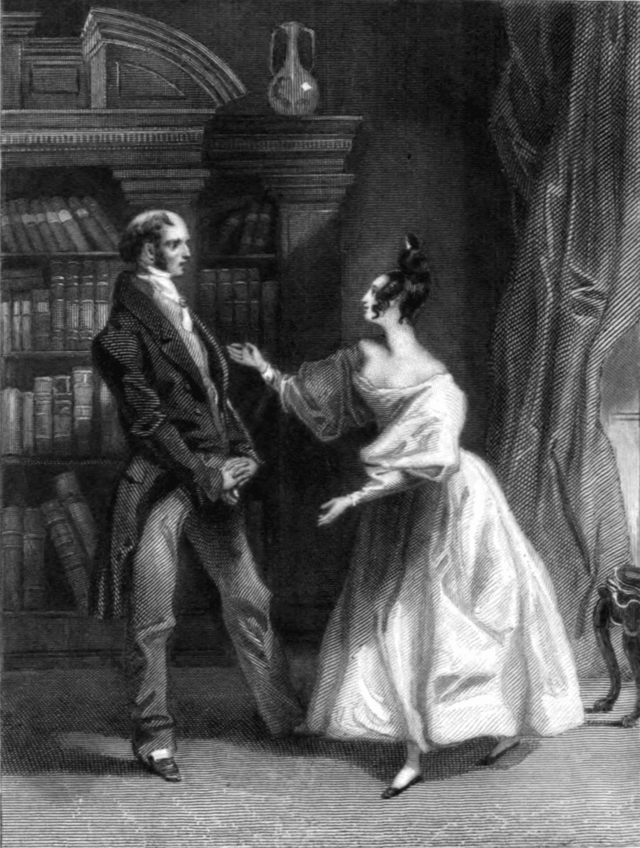
Pride and Prejudice's Mr Collins

In Pride and Prejudice, Mr Collins, with his pompous, obsequious ways, is easy to overlook as mere comic relief. Contemplation of the hero and heroine and their romantic relationship with its twists and turns is so much more appealing. I wonder though, if, in dismissing Mr Collins too quickly, we fail to recognise Jane Austen's genius for comic satire. The simple juxtaposition of Mr Collins in vivid and humorous interaction with the other characters in a coherent story line is a major accomplishment of invention.
Jane Austen, however, fashions more than amusement into her creation of his character. In Pride and Prejudice, Elizabeth Bennet's alternate amusement and embarrassment at Mr. Collin's hands displays the ridiculous position of a woman pursued by a man of inferior mind and manners, if not social position.
Likewise, Charlotte Lucas is forced to choose between life as a spinster in the home of her younger brother and marriage to a man she cannot either respect or love. Mr Collins is the key agent Miss Austen uses to measure and reveal her characters. The outrageously ridiculous dinner scene involving Mr Collins's obsequious praise of Lady Catherine de Bourgh and his overawed father-in-law Sir William Lucas echoing his words at Lady Catherine's table takes satire to a knife sharp edge that places rank and wealth in perspective. In a word rank and wealth without education, judgment, and the ability to laugh at one's self are ridiculous.
To quote another Jane Austen character's satiric comment on society from her book Persuasion:
"Good company requires only birth, education, and manners, and with regard to education is not very nice."
I am awed by Jane Austen's masterful use of her creation, Mr Collins, to satirise the preoccupation of society with wealth and rank in Pride and Prejudice, and demonstrate the extremely limited choices for women. Mr Collins as a member of the clergy is himself representational of marriage, a topic that is thoroughly examined in Pride and Prejudice. Mr Collins is both an agent for the performance of a marriage and a person whose respectability and position would be enhanced by his own marriage.
Jane Austen parades a diverse group of marriages before the reader and examines each with her lucid depiction. In an approach that is the reverse of Mr Collins's style, she strives to draw us into a consideration of marriage with humour and spare words.
Jane Austen had so abundant a well to draw her humour from, that she could afford to use some very good moments as mere throw away lines. When Mr. Collins reads aloud to the Bennets after dinner he chooses Fordyce's Sermons, a book, well-known at the time for preaching correct behaviour to young ladies. The headstrong Lydia quickly interrupts his attempt to sermonise to his host's daughters. The scene might have been drawn out for pages, but is kept to a smile provoking couple of paragraphs by the author. Jane Austen has been criticised for being too spare in her writing. However, her work has stood the test of time better than her Victorian critics. Her abundant creativity enhanced by her spare well-honed prose is almost haiku like in richness of meaning and forward momentum. The next time you read Pride and Prejudice take a moment to consider Austen's use of Mr. Collins in the story line.
Sharon Wagoner is the webmistress of The Georgian Index. Visit her site for a treasure trove of little known information about the Georgian period. A fascinating collection!
If you don't want to miss a beat when it comes to Jane Austen, make sure you are signed up to the Jane Austen newsletter for exclusive updates and discounts from our Online Gift Shop.


